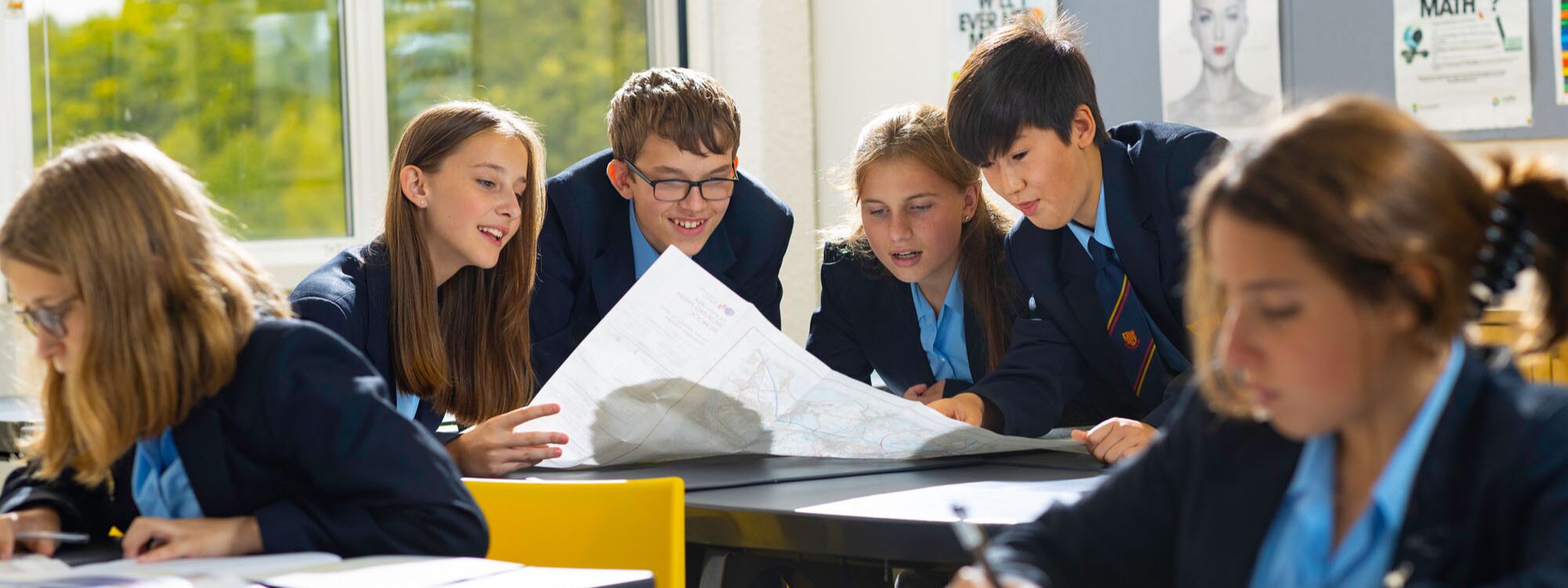
Geography
Back“Geography was the lesson I always looked forward to most. It was a form of escapism. It could be bleak midwinter outside but inside you're learning about African farming methods or the Great Lakes. No other lesson had that excitement.”
Ben Fogle
Staff members
Mr L Dixon (Head of Department)
Mr R Beeson
Mr P Costard
Mr M Crowley
Mrs E Lang
Subject Definition
Geography is “the study of the physical features of the earth and its atmosphere, and of human activity as it affects and is affected by these, including the distribution of populations and resources and political and economic activities” (https://languages.oup.com/google-dictionary-en/, 2022). It has equal emphasis on science and the social sciences, seen through the ‘lens’ of geographical thinking and within the context of place. It is unwieldy yet utterly necessary to seek order and meaning in the diversity and complexity of the world.
Geography is fundamentally about “a lifelong ‘conversation’ about Earth as the home of humankind” (Geographical Association, 2009). It is about the dynamics of the human world, for example through cultures, societies and economies, and the physical world, such as landscapes and the environment. It is about helping young people to make sense of their place in the world.
Subject Purpose
The purpose of Geography is to create more socially and environmentally aware people, who are better informed and, therefore, more responsible citizens and employees.
Geography is well placed to fascinate, inspire and take students ‘out of themselves’, experiencing knowledge far removed from their everyday experiences, but also connecting this to their lives.
Students gain a language with which to look at and think about the world. They gain the following big ideas (Jackson, 2006):
-space and place (e.g. the ways space is used and humanised to create meaningful places);
-scale and connection (e.g. the ways in which people and places are connected, from the local to the global);
-proximity and distance (e.g. how technology has eroded the friction of distance – effectively ‘shrinking’ the world);
-relational thinking (e.g. how we see the world depends on our perspective).
Geography is well placed to help students understand contemporary challenges, such as climate change, food security and energy choices.
Students are able to use different forms of data, and are therefore more skilful and employable.
KS3 Overview
Geography students will learn about the human and physical geography of the world around them and how these two realms interact. They will identify geographical patterns using data and describe, explain and analyse them. Their studies will take them from the local to the global, learning about patterns at a range of scales. Some learning occurs in distinct topics, for example weather and climate, whereas some is covered in a number of place studies across all three years, where students will revisit key concepts, for example the Horn of Africa and South West India.
KS4 Overview
'This exciting and relevant course studies geography in a balanced framework of physical and human themes and investigates the link between them.'
Students will travel the world from their classroom, exploring case studies in the United Kingdom (UK), higher income countries (HICs), newly emerging economies (NEEs) and lower income countries (LICs). Topics of study include climate change, poverty, deprivation, global shifts in economic power and the challenge of sustainable resource use. Students are also encouraged to understand their role in society, by considering different viewpoints, values and attitudes.” AQA
Qualification information
Full course title: GCSE Geography
Exam board: AQA
AQA Course Information: 8035
| Subject Documents |
|---|
| KS3 Curriculum Plan Geography |
| KS4 Geography curriculum plan |
